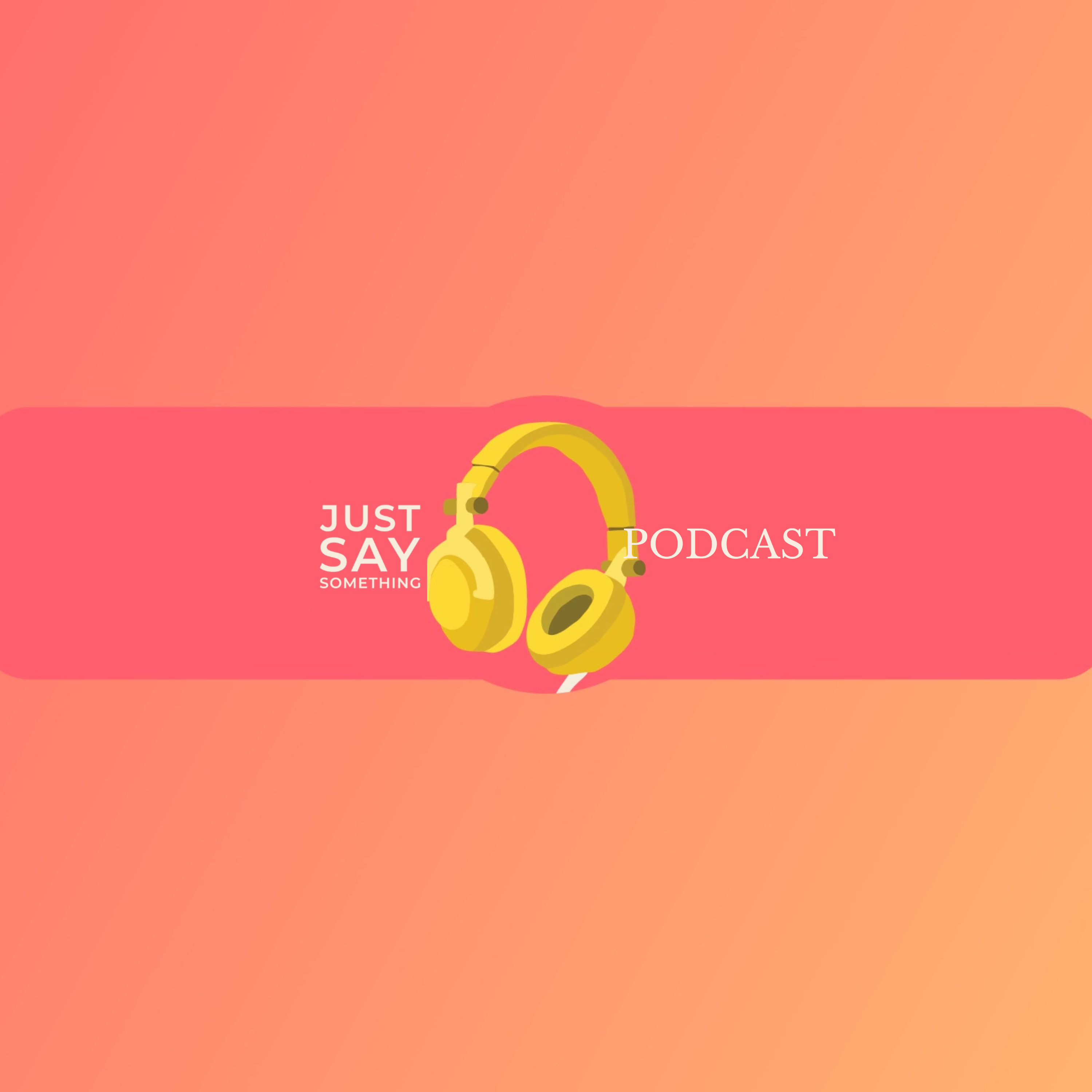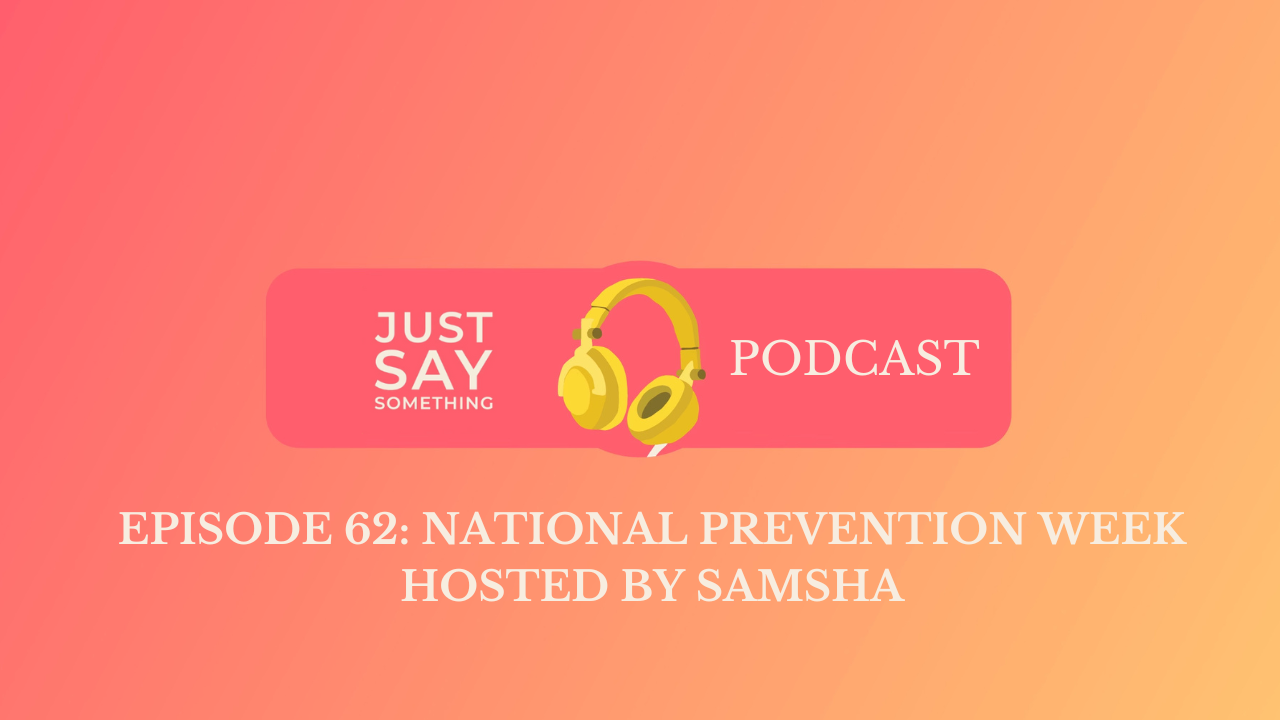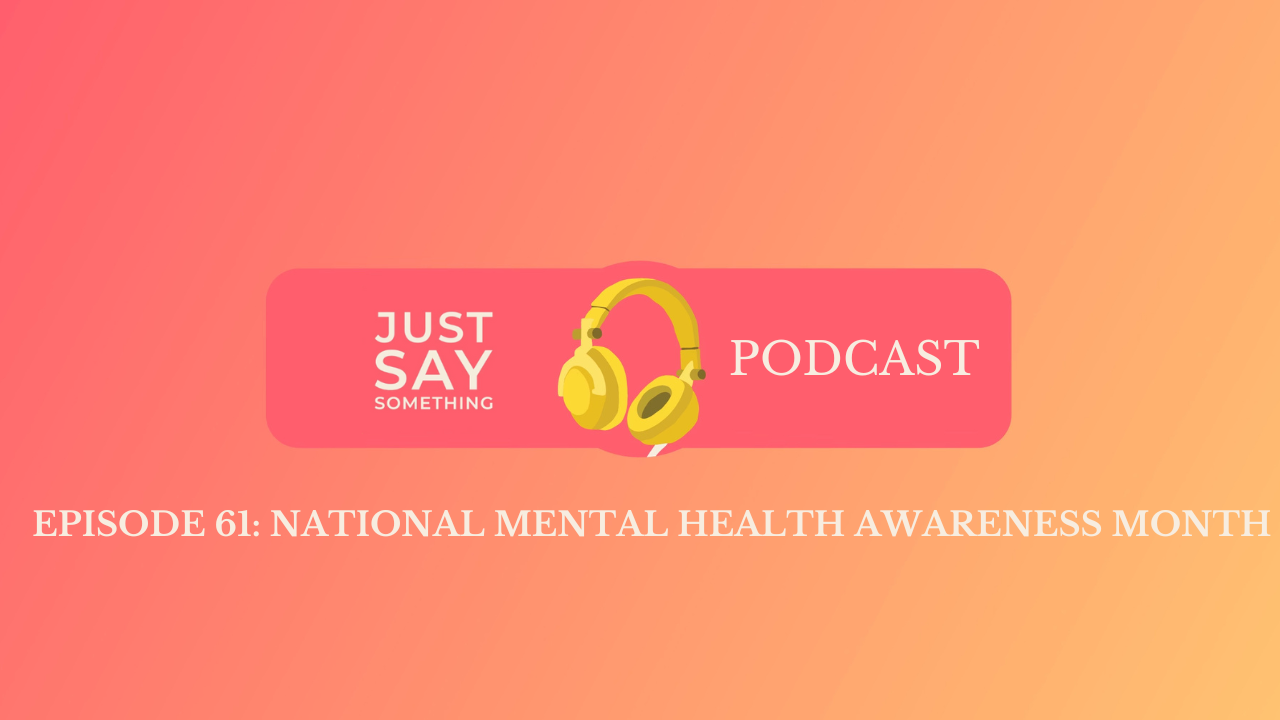Episode Transcript
[00:00:00] Foreign.
[00:00:07] Hey, hey, hey. And welcome back to another episode of Just say Something podcast. My name is Phil Clark and I'm the executive director and CEO of Just say Something as well as Compass Carolina.
[00:00:22] And today I want to talk about something that happens every year, every third Thursday of November, but often gets very, very, very little attention. And it deserves so much more. And that's the Great American Smoke Out.
[00:00:41] This event, again, is more than just a day. It's a nationwide movement to encourage people to quit smoking or to take that very first step towards quitting.
[00:00:54] Whether you're someone who smokes, love someone who does, or you're part of a community that would love to see fewer health struggles as they're related to tobacco, this is an episode for you.
[00:01:11] So what is the Great American Smoke Out?
[00:01:14] So let's get started with the basics. The Great America Smoke out is organized by American Cancer Society.
[00:01:23] It's been going on for more than 40 years, since 1970.
[00:01:29] The idea is simple but powerful.
[00:01:32] Pick a quick date, and that quit date is the Smoke Out.
[00:01:37] Every year, millions of Americans who smoke use this day to either quit altogether or make a plan to quit.
[00:01:50] It's kind of like a reset button. Instead of thinking about quitting as this huge, overwhelming, impossible task, you focus on one day, just one day, tobacco free.
[00:02:08] And here's the amazing part. Research shows that if you can make it through the first day without smoking, your chances of long term success go way up.
[00:02:20] It's about momentum. The smoke out provides that spark to help people move from intention into action.
[00:02:31] So let's talk about why this matters so much.
[00:02:37] The health impact of smoking remains the single largest preventable cause of death in the United States.
[00:02:47] It causes more than 480,000 deaths every year.
[00:02:53] That's nearly one in five deaths. It's tied to cancer, heart disease, lung disease, stroke, and on and on and on.
[00:03:05] The benefits of quitting. The good news is the benefits of quitting start almost immediately. Within 20 minutes, your heart rate drops. Within 12 hours, the carbon monoxide level in your blood returns to normal. And within a year, your risk of heart disease is cut in half.
[00:03:27] And those benefits just keep adding up the longer you stay smoke free with the community.
[00:03:36] It's not just about individuals.
[00:03:39] It's about families. It's about communities. It's secondhand smoke affects spouses, kids, co workers.
[00:03:47] When someone quits, they're protecting the people around them too.
[00:03:53] And then the economic impact.
[00:03:56] Smoking is very expensive.
[00:03:59] Cigarettes cost thousands of dollars per year, and that's not even counting the long term. Health care costs tied to smoking or smoking related illnesses.
[00:04:11] That's in the tens of millions of dollars on an annual basis just here in South Carolina.
[00:04:19] The smoke out is a chance to shine a light on all of this and to remind people that quitting is possible.
[00:04:26] Quitting is powerful, and quitting benefits everyone.
[00:04:31] Here's where you come.
[00:04:34] You, the individual, come in.
[00:04:38] Maybe you don't smoke, maybe you do.
[00:04:42] Either way, there are ways you can promote the Great American Smoke out in your own circle of influence, whether that's at work, at home, or at school.
[00:04:55] Start conversation Share the date this year it's November 20, 2025.
[00:05:02] Post about it on social media. Mention it in your group chats. Put it on your calendar.
[00:05:09] Just like with everything else, awareness is step one.
[00:05:15] Then offer support.
[00:05:17] If you know someone who smokes, don't nag like we typically do. I know I do.
[00:05:24] Instead, be supportive, asked hey, have you heard about the Great America Smoke Out?
[00:05:30] Want me to help to check in with you on that day?
[00:05:36] Sometimes people just need to know someone's there in their corner with them for that added support.
[00:05:44] Workplace or school promotions are endless opportunities to promote this at work or school.
[00:05:52] If you're in a position to do so, create a small event, maybe a lunch and learn with health resources or a poster campaign with quit smoking facts.
[00:06:06] Some workplaces even offer incentives like free nicotine replacement therapies or counseling.
[00:06:15] There are a lot of resources out there. The American Cancer Society has great quit smoking resources. There's also quit lines like 1-800-quit- now where people can talk to a counselor for free.
[00:06:33] Share those numbers, post them in emails, post them in your social media. Post them where people will see them. In South Carolina, we have the South Carolina Tobacco Quit Line. Their website has so many resources and you can visit quitnowsc.org another way to support and to show your support for this is lead by example. If you're someone who smokes, consider using this day as your quit date.
[00:07:07] Or if you've quit in the past, share your story Nothing is more powerful than someone saying I did it and so can you.
[00:07:18] At the end of the day, the smoke out is about connection.
[00:07:22] It's about communities coming together to say, we care about you, we want you to live longer, healthier tobacco, free lives.
[00:07:35] And every little effort, every conversation, every post, every shared resource, every adds up.
[00:07:44] So that's the Great American medicine, Great American Smoke out in a nutshell.
[00:07:51] A day to quit smoking, to support people who are quitting, and to raise awareness about the health impacts of tobacco if you're listening today and thinking about quitting, let me just say, you don't have to do it alone.
[00:08:08] Reach out for help. Make a plan and take it one day at a time. And if you're someone who doesn't smoke, think about how you can help. Use your voice, your platform to even and even just your encouragement to make a difference for someone else.
[00:08:29] Okay, well, thank you for tuning in. If you found today's episode helpful, share it with a friend, coworker, or family member who could use this reminder.
[00:08:40] Let's keep the conversation going, and maybe, just maybe, one day, we'll save a few extra lives along the way.
[00:08:50] Until next time, take care of yourself and each other and be sure to like, share and subscribe.
[00:08:59] And this is Phil Clark signing off for another episode of Just say Something podcast. Sam.


